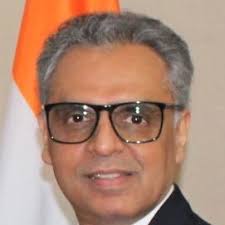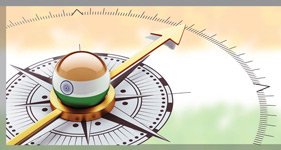New Delhi. External Affairs Minister (EAM) Dr S Jaishankar visited China from August 11-13. The visit was very crucial in view of easing the tension between India and China, an all-weather ally of Pakistan which felt marginalized and offended after Parliament scrapped Article 370 of the Indian Constitution giving special status to the state of Jammu and Kashmir. During foreign affairs ministerial meeting in Beijing, both sides tried to handle J&K issues in a manner that it should not become an unmanageable irritant between the two countries. Revocation of Article 370 has become subject to high-level diplomatic activity at the international forum for India, Pakistan, and China. After the revocation of Article 370, all communications and internet services were cut off in J&K to avoid anti-India protests in the region and large gatherings were not permitted.
The visit of foreign ministers of Pakistan and India to China in a week’s time clearly indicated the diplomatic and strategic importance of the issue. Pakistan moved to the United Nations Security Council (UNSC) over India’s decision to revoke the special status of J&K. Pakistan claim that China and UNSC members support Pakistan’s position for this issue, however apart from China, the remaining four permanent members-Britain, France, Russia, and the US want India and Pakistan to address the dispute in a bilateral set-up and maintain peace and stability in the region.
Jammu and Kashmir issue and Article 370:
Earlier Jammu and Kashmir was called a princely state, however later it joined India in 1947 after the partition and since then it has been the subject of dispute between India, Pakistan, and China. Since 1949, the state of Jammu and Kashmir (J&K) has been given near-autonomous authority. The Article 370 allowed J&K a certain amount of autonomy like a separate constitution, a separate flag and also the freedom to make its own laws. However, external affairs, defence, finance, and communication were put under the control of Government of India. Article 370 gives right to the people of J&K for permanent residency, ownership of property as well as fundamental rights. As per the provisions under Article 370, people from other states of India cannot purchase property or settle in J&K.
After Article 370 (35A) is revoked, permanent residents of J&K stand to lose all special privileges like right to own property, holding state government jobs, and also discrimination against women who chose to marry outside J&K. With the latest development, the J&K state Assembly will no longer be in a position to clear any significant bills and it goes to a power shift in favour of Union government.
India-China Foreign Ministers Meeting: Agenda and proposal
External Affairs Minister Dr S Jaishankar visited China from August 11-13 after Pakistani Foreign Minister Shah Mahmood Qureshi who visited Beijing on August 9 and discussed India’s revocation of Article 370 in J&K. The Chinese Foreign Minister Wang Yi stated, “It should be properly and peacefully resolved based on the UN Charter, relevant UN Security Council resolutions and bilateral agreement.” Pakistan on August 14 moved to the UNSC over India’s decision to revoke Article 370. Pakistan claims China backing the Pakistan position over this issue and other UNSC members but only Beijing supported Islamabad’s position. Pakistan’s Foreign Minister Shah Mahmood Qureshi wrote a letter to the Security Council stating: “If India chooses to resort again to the use of force, Pakistan will be obliged to respond, in self-defence, with all its capabilities,” and added “in view of the dangerous implications”.
Both Indian and Pakistani Foreign Ministers met Chinese counterparts to bring China to their own side. However, China tilted more towards Pakistani side because of its own interest in the region. China also maintains the balance and mentions that both sides should maintain the peace and stability in the region and avoid escalation of tensions. India asked China to “base its own assessment on realities.” China has more concern about the Union Territory of Ladakh that is a bone of contention between India and China. EAM Jaishankar conveyed to China that there was no implication for either the external boundaries of India or Line of Actual Control (LAC) with China and also India was not raising any additional territorial claims. From the Chinese side Mr Wang said “On the basis of the Five Principles of Peaceful Co-existence India and China can have mutually beneficial cooperation as well as both nations can contribute to world peace and human progress”.
United Nations Security Council (UNSC) meeting on Kashmir:
The UN Security Council held a rare meeting on Kashmir on August 16 after India revoked the special status to J&K. The meeting took place behind closed doors with only the five permanent members (UK, China, France, Russia, and the US) and the 10 non-permanent members (Belgium, Cote d’Ivoire, Dominican Republic, Equatorial Guinea, Germany, Indonesia, Kuwait, Peru, Poland, and South Africa). India’s permanent representative to the United Nations Syed Akbaruddin said to the international community that move to scrap Article 370 is an internal matter of India and has also advised Pakistan to accept the reality. Pakistan’s effort to bring this issue to the UNSC has failed to agree on any statement. There were not many outcomes of this meeting and council members failed to even come up with a statement to the press, which is the lowest level of Council action. The Council members disagreed on the statement because it would escalate tensions between India and Pakistan.

Conclusion:
External Affairs Minister’s visit to China might not bring China to the Indian Side during UNSC rare meeting on Kashmir issue but it defiantly showed China is less aggressive on India’s revocation of Article 370. China favoured Pakistan at the UNSC but other UNSC permanent and non-permanent members did not support Islamabad, which is a setback to Pakistan at International forum. Russia became the first P-5 country to describe India’s move on Kashmir as an internal matter and it should be solved according to resolution under the Simla (Shimla) Agreement of 1972. Other than China, P-5 countries did not give any statement against India’s move on Article 370. This is a victory of India’s action on the revocation of Article 370 at International Forum.
Beijing supported Islamabad’s move at UNSC because Ladakh was made a Union Territory (UT) after the scrapping of Article 370, and it conflicts China’s interest in the region. China plays its own political-strategic manifestation in the region with Pakistan’s support at international forums like UNSC. Despite all setbacks, Pakistan once again will aggressively try to bring this issue at the international forum using diplomatic and other means to restore Article 370 in J&K.













